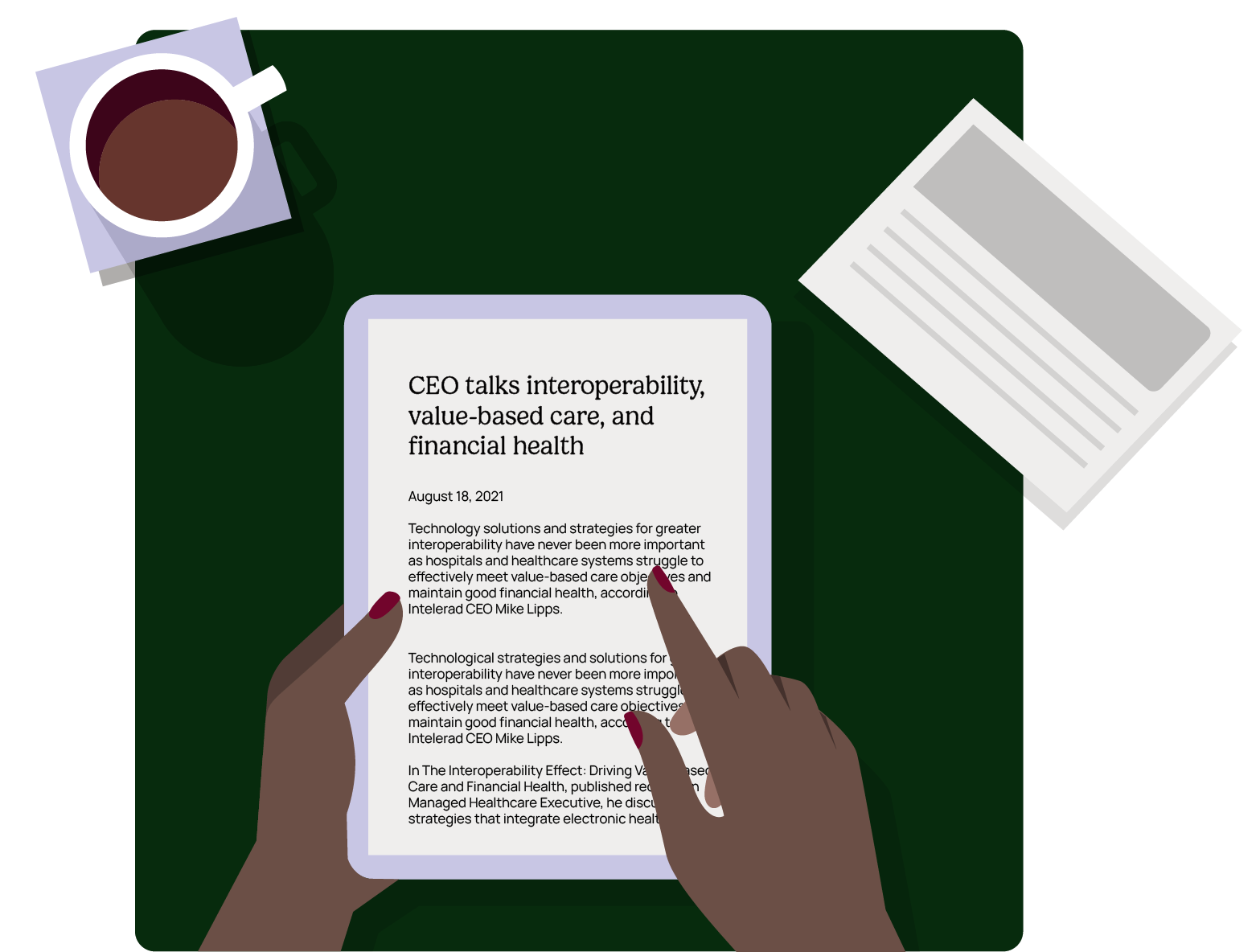August 18, 2021
Technological strategies and solutions for greater interoperability have never been more important as hospitals and healthcare systems struggle to effectively meet value-based care objectives and maintain good financial health, according to Intelerad CEO Mike Lipps.
In The Interoperability Effect: Driving Value-Based Care and Financial Health, published recently in Managed Healthcare Executive, he discusses strategies that integrate electronic health records, imaging platforms, and clinical diagnostic decision-making support tools—and how vendors hold that key.
“To say that hospitals and health systems have had to do more with less in the past 18 months is the understatement of a lifetime,” said Lipps, citing challenges caused by the COVID-19 pandemic that include overworked care providers, fewer elective procedures that resulted in a steep decline in revenue, and the need to quickly ramp up virtual care offerings.
“At the same time, they have been navigating the move to value-based care, which is a cataclysmic shift in the way hospitals historically operate,” he said.
An industry-wide lack of interoperability between systems and data makes this even more difficult. “To reduce costs, drive greater efficiency that enables providers to focus more on delivering care, and improve patient outcomes, hospitals need to be able to break down the information silos that have developed amongst their various departments,” Lipps said.
The pressure to be cost-effective while maintaining a high quality of care is immense, Lipps said in an interview with Health Professional Radio about achieving operability in the hospital setting.
“Technology to me is the answer,” he said. “To the extent that we can provide the backbone to the imaging system and the archive and the viewers and things of that nature and connect directly to the electronic health record (EHR) … and create a playground, if you will, for AI tools we can ultimately help provide a more efficient system end-to-end.”
As Intelerad moves from radiology only into a broader solution for global medical image management, he said, “I think we’re going to have a profound impact on the landscape of IT and ultimately on patient outcomes.”
Click here to listen to the full interview. Health Professional Radio is owned and operated by Vertical Internet Media, which has been broadcasting globally since 2012 with dedicated internet audio streams for Australia and the United States.





